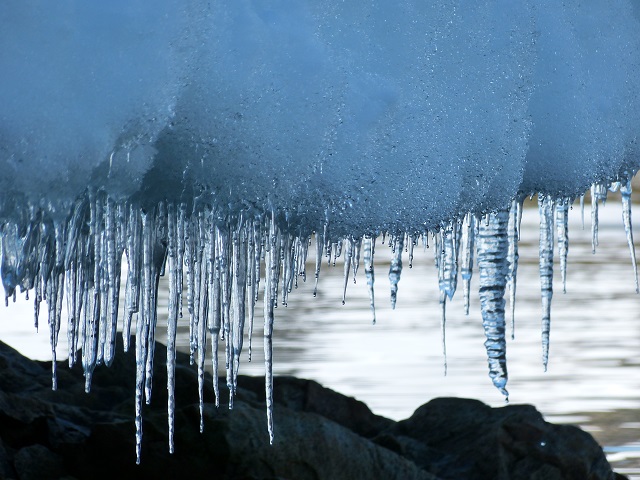 Icicles formed by the melting of a glacier in west Antarctica. The melt here is rapid and has been accelerating, injecting greater quantities of freshwater into the ocean and raising sea levels. Credit: Mike Meredith.
Icicles formed by the melting of a glacier in west Antarctica. The melt here is rapid and has been accelerating, injecting greater quantities of freshwater into the ocean and raising sea levels. Credit: Mike Meredith.
According to new satellite data compiled over the last 19 years, the sea level around the Antarctic coast is rising faster than the global rate.
Antarctica’s sea level has increased by 8cm whereas the global average is just 6cm. This rise is mainly attributed to the fresh water released by melting glaciers.
This rapid increase in the sea-level was detected by scientists at the University of Southampton whilst they were analysing satellite scans of a large area covering more than 100,0000 square kilometres.
The gradual melting of floating ice shelves and the ice sheet has resulted in more than 350 gigatonnes of freshwater flowing into the oceans around Antarctica. This in turn has reduced the salinity level of the surrounding oceans.
The team at the University of Southampton also developed a computer model to study the impact of the melting ice on the Antarctic Ocean. The simulated data was a very close reflection of the real picture revealed by the satellite data.
Craig Rye, the lead author of the study, stated that when compared to salt water, fresh water has a lower density and as a result scientists expected that the accumulation of fresh water would contribute to a localised increase in the sea level.
Craig added that the relationship between ice, the sea and the atmosphere plays a major role in the stability of the global sea levels, the Antarctic ice sheet and also in other environmental processes, such as the generation of Antarctic bottom water, which cools and ventilates much of the global ocean abyss.
The study was published in Nature Geoscience. Researchers at the British Antarctic Survey and the National Oceanography Centre also contributed to this study.